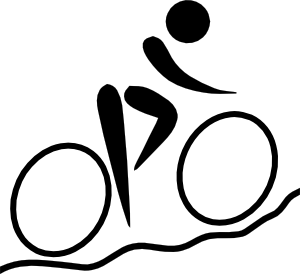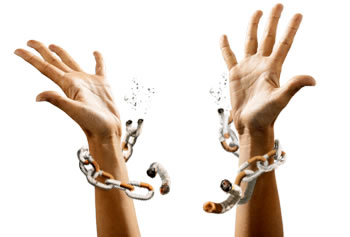“Man often becomes what he believes himself to be. If I keep on saying to myself that I cannot do a certain thing, it is possible that I may end by really becoming incapable of doing it. On the contrary, if I have the belief that I can do it, I shall surely acquire the capacity to do it even if I may not have it at the beginning.”
– Mohandas Karamchand (Mahatma) Gandhi
Do you remember that first time you tried to ride a two-wheel bike? Do you remember feelings of fear or excitement? Do you remember being determined or feeling relegated to defeat before even getting the courage to lift your feet from the ground? As a cyclist I love the feeling of free-wheeling freedom on my bike, but it wasn’t always that way! I recently taught my daughter to ride her two-wheel bike and I was reminded of how much trust, skill, and the ability to work through fear was involved in gaining the free-wheeling feeling I love so much.
As a cyclist I love the feeling of free-wheeling freedom on my bike, but it wasn’t always that way! I recently taught my daughter to ride her two-wheel bike and I was reminded of how much trust, skill, and the ability to work through fear was involved in gaining the free-wheeling feeling I love so much.
As I taught my daughter to ride her bike, I thought of the parallels of cycling to successful recovery. First, do you know where you are headed? Are you aiming for a vision of successful navigation through fear? Or are you focused on the fear of the task at hand? One of my favorite books lately is The Art of Racing in the Rain about a race car driver on the Formula One Circuit. I thought the metaphor in that book was a brilliant metaphor for recovery, cycling, and life in general. Danny, the character in the book, was a successful racer and a successful navigator in life’s challenges for the simple thought of: Our focus determines our future. Similarly, on the bike or in recovery, if we are focused on fear we are not focused on success. Danny noticed many racers crashed because they focused on “not hitting the wall” rather than the focus to get around the curve safely. Every racer, cyclist and person in recovery has the ability to know they have the skills to keep themselves safe. Each time I pushed on the bike teaching my daughter, we would look at where her focus was. Was she focusing on the fear of falling or the fact she can ride and enjoy herself?
As I sit with clients in early recovery I notice many of these same parallels of how one navigates through the fears of letting go of addiction and gaining a mastery of skills necessary for recovery. It is a big moment indeed when one is about to leave what they know, even if the chains of addiction are “the hell that they know”.  Often one might feel the hell one knows is often better than the hell one doesn’t know. There is necessity to trust and let go just as one has to lift one’s feet off the ground to place them on the pedals of the bike. As on the bike, one needs to begin to find a new balance. I remind my clients to look at their focus in early recovery as I reminded my daughter to focus on successfully riding the bike. I ask my clients are you focusing on not using? Or are you focusing on gaining the skills that support the balance of recovery. In treatment we are building skills of successful recovery.
Often one might feel the hell one knows is often better than the hell one doesn’t know. There is necessity to trust and let go just as one has to lift one’s feet off the ground to place them on the pedals of the bike. As on the bike, one needs to begin to find a new balance. I remind my clients to look at their focus in early recovery as I reminded my daughter to focus on successfully riding the bike. I ask my clients are you focusing on not using? Or are you focusing on gaining the skills that support the balance of recovery. In treatment we are building skills of successful recovery.
One is scared to give up the addiction because it has helped them cope. As a cyclist one has to know how to ride on different terrains and under different conditions. Successful cyclists know how to keep themselves safe from crashing. So it is in recovery, as well. Life throws us many curves, mountains to climb, downhills and slippery wet pavements. People who maintain sobriety glean the skills necessary to avoid the crash of relapse.
Soren Kierkegaard , Danish religious philosopher, wrote about “the leap of faith”. He noticed independence is born of interdependence in that moment a mother teaches her child to walk. The child doesn’t have the skills to master walking as it begins its first steps, but the gaze of the child is focused on the mother and the mother encourages the belief to the child they can take that next step. So, too, in successful recovery we build an environment to support recovery. 12-step groups, treatment groups, and therapy offer environments to build skills. They allow us to meet the people who can believe in us when we don’t even belief we can do it ourselves. Independence born of interdependence.
I believed my daughter could ride her bike even before she could believe she could. Her trust, focus, and interdependence on me to hold her up until she could find her own balance was key to her successful mastery of the task at hand. My clients come to me to see” the gaze” and a belief that “You can do this!” and learn skills to avoid the crash of relapse. I recommend 12-step groups to further widen their support and belief networks. I offer treatment groups which are akin to cycling clinics to handle the climbs and hairpin turns of life. We focus on the vision of recovery because I do believe focus does determine our future. I love helping others find the free-wheeling freedom from a life of addiction and keeping themselves safe for the journey of life.